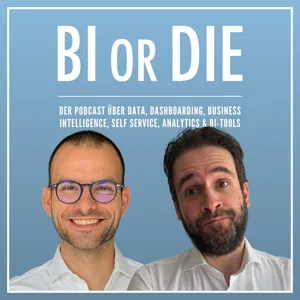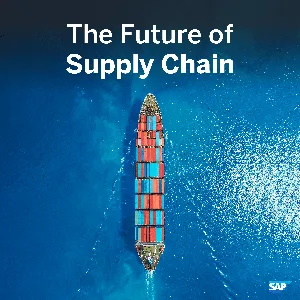Podcast Summary
CEOs evaluate products and consumer experiences personally: CEOs work tirelessly to make hard choices and ensure their company's success by closely examining product offerings and consumer experiences
CEOs, even those leading large corporations like PepsiCo or Microsoft, pay close attention to the smallest details of their businesses, including their product offerings and consumer experiences. Indra Nooyi, the CEO of PepsiCo, personally evaluates her company's products from a consumer perspective and makes decisions on what to improve based on her observations. This micro-management approach is essential for CEOs to make hard choices and ensure the success of their companies. Even CEOs of social networking companies like Facebook face the challenge of making decisions that impact millions of users. The image of CEOs as luxury-living caricatures is a misconception, as they work long hours and dedicate themselves to their roles.
CEOs oversee operational aspects too: CEOs balance strategic vision and operational execution, overseeing both high-level decisions and day-to-day operations
Being a CEO involves more than just making high-level strategic decisions. While it's true that CEOs spend time engaging with Wall Street and managing their team, they also have a significant role in overseeing the operational aspects of their businesses. Economist Rafaela Sedun, who teaches future CEOs at Harvard Business School, notes that her students often overlook the importance of operations management. However, Sedun emphasizes that both strategic and operational considerations are crucial for CEO success. Despite common perceptions of CEOs as older white men leading large corporations, the majority of CEOs actually manage small teams. Overall, the role of a CEO requires a balance of strategic vision and operational execution.
The Challenge of Operational Excellence for CEOs: Effective CEOs prioritize operational excellence through data-driven decision making, thorough performance reviews, and attention to detail, ultimately impacting a company's success.
While operational excellence may seem like the easy, unsexy part of business, it's actually a massive challenge for many organizations. Management practices, such as data collection and analysis, thorough performance reviews, and attention to detail, can significantly impact a company's success. However, achieving these basics of managerial competence can be difficult and tedious, and CEOs often have to balance the needs of various constituencies, making it a complex and crucial role. Despite the importance of a competent CEO, there is still debate on just how much they matter to a firm's success. Nonetheless, the evidence suggests that a strong CEO can make a significant difference.
The Role of CEO in Company's Success is Crucial but Predicting a Successful One is Challenging: While a CEO's educational background, prior experience, and charming personality can narrow down potential leaders, predicting their success remains difficult.
According to Carlisle's experience in private equity, the CEO is the most crucial factor in a company's success. However, researcher Nicholas Bloom's findings suggest that while the leader does matter, there is no definitive answer on what makes a good or bad leader. Despite the difficulty in predicting a successful leader, it is important to note that identifying strong educational backgrounds, prior experience, and charming personalities can narrow down the pool of potential leaders, but it becomes challenging to determine success at that point. The comparison to tennis illustrates this concept, as professional tennis players may look similar, but their skills and abilities can only be determined through observation.
CEO Compensation: Deserving or Disproportionate?: Research suggests CEO compensation has increased significantly but there's little evidence linking it to performance. Firm size, not performance, is a major factor in CEO salaries.
While the role of CEOs is essential for business performance, the amount they are paid remains a contentious issue. Research suggests that CEO compensation has significantly increased over the past few decades, with the average CEO of a top US firm earning over $15 million in 2016. However, there is little large-scale representative evidence to determine if CEOs deserve such high salaries, as their compensation seems disproportionate to their performance. Some argue that CEOs are overpaid due to the demanding nature of the job and the significant impact their decisions have on society. However, studies show that firm size, rather than performance, is a significant determinant of CEO salaries. Despite this, many argue that CEOs are still underpaid given the responsibilities they carry. Ultimately, the question of how much CEOs should be paid remains unanswered.
Determining the qualities of a great CEO remains elusive: Extensive research and billions spent on CEO training, but limited predictive power from traditional metrics and traits, leaving the search for definitive evidence ongoing
Despite extensive research and billions of dollars spent on leadership training, it is challenging to empirically determine what makes a great CEO. Traditional metrics like share price and profits don't fully capture a CEO's impact, and traits like charisma or decisiveness have shown limited predictive power. Harry Minsberg's pioneering work in the 1970s involved observing CEOs' activities and roles, but large-scale representative research has been scarce since then. The academic focus on groups rather than individual leaders has persisted, leaving the search for definitive evidence on effective leadership an ongoing challenge.
Exploring Effective Leadership Beyond Anecdotes: Scientific studies, such as Rafaela Sedun's research, offer valuable insights into effective leadership practices by focusing on what CEOs do, rather than relying on anecdotes of winners.
The modern leadership gospel, based on observing high-profile individual CEOs, may not be representative or accurate. Instead of relying on anecdotes of winners, it's essential to look at both winners and losers to identify effective leadership qualities. The World Management Survey, which aimed to measure management practices in large samples of firms from around the world, struggled to find a definitive answer. However, current research by Rafaela Sedun shows promise by focusing on what CEOs do rather than who they are. Sedun's studies involve CEOs releasing their time diaries, allowing researchers to "shadow" their agendas, providing valuable insights into effective leadership practices. By taking a more scientific approach, we can identify the specific qualities that contribute to good leadership.
Manager vs Leader CEOs: Manager CEOs focus on operations and one-on-ones, while leader CEOs engage in multifunctional meetings and collaborate with more people. Leader CEOs' firms are more productive and profitable, but the best CEO for a company depends on its unique needs.
Effective time management and leadership styles vary greatly among CEOs. Research by Sedun and her team revealed two distinct ways of allocating time: managers and leaders. Manager CEOs focus on operational activities and one-on-one meetings, while leader CEOs engage in multifunctional meetings and collaborate with more people. The findings suggest that firms led by leader CEOs are more productive and profitable. However, it's important to note that this correlation doesn't necessarily mean that leader CEOs are inherently better for all firms. Instead, it may indicate an assignment problem where some firms end up with a leader CEO when they actually need a manager, or vice versa. Ultimately, the most effective CEO for a given company depends on the specific situation and the company's needs.
Exploring the Lives and Decisions of CEOs: Academic research can't predict CEO success, but we can learn from their backgrounds, approaches, and challenges. Being a CEO requires a unique blend of skills, experiences, and mindset, and mistakes are inevitable.
There's no definitive formula for what makes a successful CEO. Academic research suggests that there's no set of identifiable characteristics that can predict who will succeed and who will fail. Instead, we'll explore the lives and decisions of various CEOs, delving into their backgrounds, their approaches to leadership, and the challenges they've faced. We'll also discuss the pipeline for CEO selection and the underrepresentation of women in Fortune 500 CEO roles. The role of a CEO is a lonely one, and we'll hear from former CEOs like Carol Bartz and Ray Dalio about the challenges of making tough decisions and dealing with crises. We'll also explore the importance of delegation, modernity versus tradition, and the need for diverse perspectives in leadership. Ultimately, we'll learn that being a CEO requires a unique blend of skills, experiences, and mindset, and that mistakes are an inevitable part of the journey.
Exploring the unexpected consequences of factory explosions: Factory explosions, while dangerous and costly, can lead to safer work environments and no fatalities, as shown in this episode of Freakonomics Radio
The factory explosion, although dangerous and costly, ultimately resulted in a safer work environment and no fatalities. This episode, produced by WNYC Studios and Dubner Productions, explores this idea further through various stories and research. The team includes Max Miller, Allison Hockenberry, Merit Jacob, Greg Rosalski, Stephanie Tam, Vera Carruthers, Harry Huggins, and Brian Gutierrez. David Herman handled the sound design, and Luis Guerra composed the music. Listeners can subscribe to Freakonomics Radio on Apple Podcasts or their preferred podcast app, access the archive at freekonomics.com, or follow them on Twitter, Facebook, or via email at radio@freakonomics.com.






